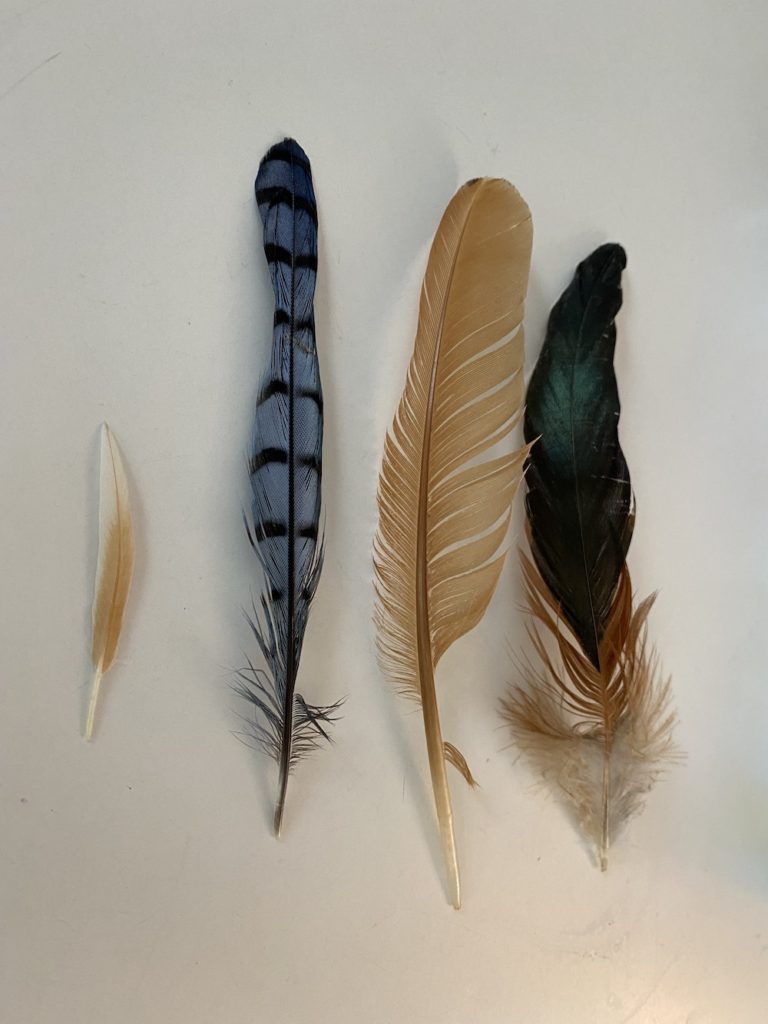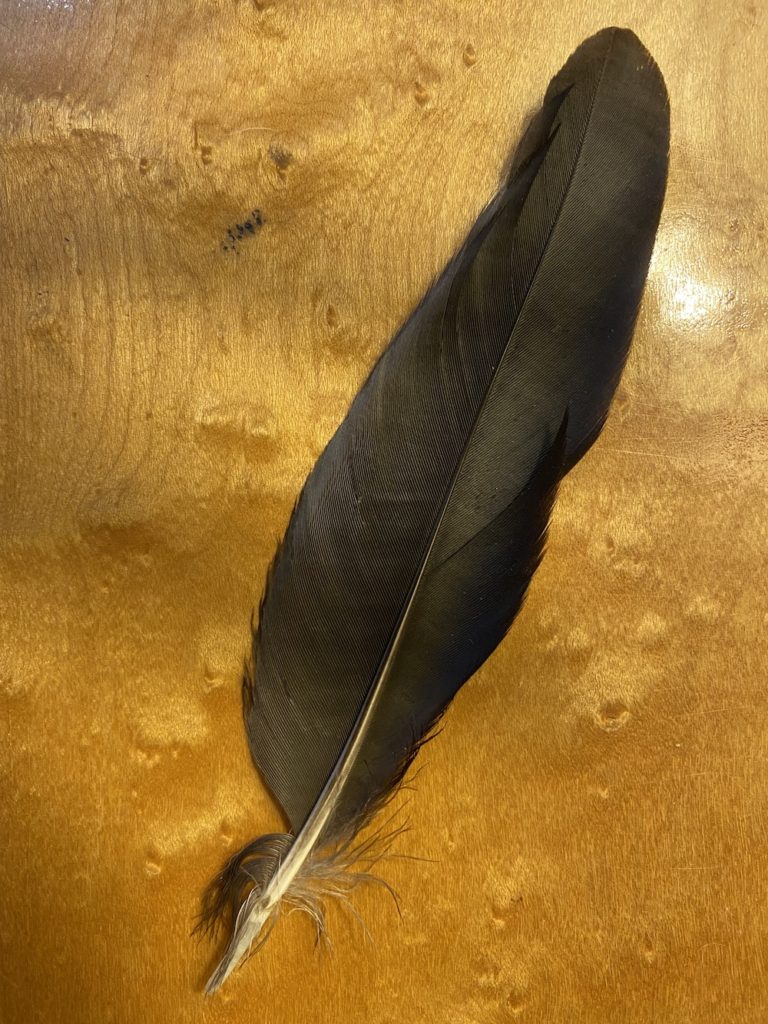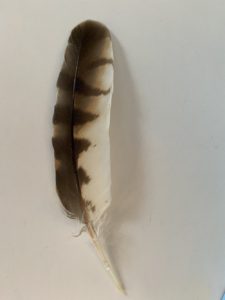
I’m finding, as a parent, that I’m so often in the trenches of the days that I’m not aware of the subtle shifts occurring around me until I poke my head up out of my little metaphorical meerkat hole and look around. Here’s Annie rolling around the neighborhood on her balance bike recalling something that happened at the lake last summer because she’s not a baby anymore and the stories are beginning to settle into her narrative. And Jovie hinting about wanting a cell phone and bemoaning the newly discovered hair on her toes.
It’s the same with Lily. She’s almost as tall as me. Recently, I asked her to carry me somewhere in the house as a joke and she shocked me by wrapping her arms around my midsection and lifting me off the ground for a brief and terrifying second. She’s always been a bit mercurial- one minute blasting Rick Astley in the kitchen and thrusting her chin back and forth like a chicken and the next literally retreating into the couch in agony over the slightest annoyance – the dog barking or Annie asking to watch “Frozen II” for the hundredth time. She’s still Lily – still obsessed with cats and with books filled with cat facts and books filled with fictional accounts of warring cat clans. An ant hill will still stop her in her tracks and prompt intense observation. But she’s moodier. More private. She loves her friends, but is less interested in socializing. While Jovie and Annie can play together for hours- house or restaurant- Lily is less likely to join in. I’ll often find her tucked in her bed reading. When prompted about her spending so much time alone or her stormy moods, her eye brows will lower and press together and she’ll give me a steady glare. “Nothing’s wrong,” she’ll say. When we take walks together, sometimes she’ll elaborate a little. “Humans are stupid,” she’ll say. “We’re destroying the planet.”
Sh’s angry about drinking straws and pollution and the idea that someone has invented a robot that can walk a dog. She detests the abuse and needless killing of animals. She’s frustrated by leaders who don’t seem to care about any of it. This place she’s in- nearly 12 and recognizing that she’s leaving childhood behind and that adulthood doesn’t seem all that pleasant- is one I remember well. Sixth grade felt like a turning point. Or a point of no return. I didn’t know how to be a grown. I didn’t know how to care about grown people things. I was so, so earnest. So naive. On the one hand, I was beginning to recognize that the world was actually not like the plot of a Disney movie. Humans were messy and quarrelsome and prone to violence and general assholery (though I never would’ve called it that back then. Lily cringes at hearing “the ‘a’ word” On the other hand, I really felt like we could have world peace, if we, just, like, stopped being jerks to one another. But I was more poetic about it. Literally. I wrote a poem about it.
Lily is different. She’s just as idealistic, but she’s angrier. Less tolerant of excuse making. If she were the swearing sort, I’m pretty sure Lily would make a general announcement to all of humanity telling us we needed to get our shit together. Not that I disagree. Not that she hasn’t earned her cynicism and disappointment after the past few years. The pandemic, parts of the world literally on fire, racism, war, leaders who have failed to prioritize her future – the future of all children- over their own special interests. She sees it all with such clarity and ferocious sense of righteousness. I was never as fierce as she is. I’m terrified the world will teach her she’s impractical and silly- just like it did me. That she will lose that indignation and feel resigned to the inevitable.
“Humans are stupid” she tells me. And because I guess I still haven’t abandoned my 12-year-old self- because I can’t let her give up hope- I tell her that humans do lots of stupid things, but they also do lots of great things. Like writing “Hamilton” and books about warrior cats and boy wizards. There’s Rick Rolling and “Bluey” and ice cream and Monet’s water lilies. She agrees that these are all great things. But not enough to make up for all the harm we cause. And how can I even argue? What evidence can I submit for the defense?
I’ve been rolling this around in my head for months. How can we love humanity? In this age of – what? Anger, fear, brokenness, destruction. Division.
I find peace outside. When it’s too much inside. I go for walks or sit on my stoop. I listen to the cardinals singing at dusk. The crows calling to one another. The kids playing on the next street. The cicadas. I watch the sky. The fireflies. The breeze through the leaves. It’s grounding. I often regret not living in some deep woods retreat- not living closer to the land. But on walks I realize that it’s all right here. This nature I feel as if I’m missing. It’s already in front of me. It’s already in me. It is me.
Maybe to remind myself of this, I am constantly collecting little bits of detritus from outside. Sea shells and snail shells. Interesting looking rocks. An abandoned wasps nest. Weird looking nuts. Leaf skeletons. Dried nettles and marble-sized pine cones whose structure reminds me of a “Star Warsian” spacecraft. Pieces of monarch wings that looked like gemstones against the mulch I found them in.
It’s compulsive- this gathering of things. It’s part art appreciation. Part preservation. Part exploration. Part spiritual. Like if I surround myself enough with these bits and pieces of nature maybe I will understand it all more. Maybe I will feel more apart of it. Maybe it holds truths. Answers to the questions.

My collection contains numerous feathers – from chickens, hawks, songbirds, and at least one peacock. I found another one while walking with a friend the other night. This one a deep, glossy tea-colored specimen – probably from a wing but maybe a tail. I’m not expert. Who knows what type of bird? Maybe a robin? I noticed as I ran my fingers along the underside of the feather how it rippled like water when a stone was dropped in. It didn’t break, but rather each part connected to the next in a smooth undulation. I wondered about it. How the structure stayed together despite the pressure of my finger gliding across it.
Naturally, I turned to the internet – whose creation I both love and loathe. The internet confirmed that feathers are amazing. The central spine- the rachis- gripping rows of barbs which themselves are the veins of even finer barbules and hooklets holding the structure together. They’re waterproofing and insulating, while allowing airflow needed for flight. All the parts of the parts work together. Each is important to the function of the whole.
As I ran my finger across the feather I considered how it stayed together. How it required all the little parts working together. I thought about humanity. How at our best we are each little barbules reaching out to the next barbule. How we create these little networks. The connection. The hooking together both protects us and allows us to fly metaphorically and physically.
I feel as if the internet- social media in particular, has made us so focused on how we as individuals function and perform. How we appear. How we behave. How we are seen. How we are known.
How we are loved.
It feels as if there’s this idea that we all need to be peacocks. That our beauty … our relevance … our necessity… is defined by presenting the biggest, most vibrant, loudest parts of ourselves. But I wonder if our ardent individuality hasn’t left us just left all of us as lonely, unhooked barbules.
All cold, wet, and grounded. How we actually feel less beautiful than we might otherwise.
What I take walks in the woods, I feel a deep sense of gratitude for the trees and the birds and the streams wending through it all. I think of how beautiful they all are. And I feel a sense of longing to be a part of that beauty. I feel apologetic, even, for my ugly human presence. For not having anything to offer. To only be this witness to the proceedings.
A taker, not a contributor.
But this dark little feather reminds me I’m both. Humans forget that we are nature, too. We are part of the whole. We function within the system, not outside. We have a role.
I wonder if we saw ourselves in it – in the forest, in the ocean, in the deserts- saw the way our fingerprints whorled like the spiral of a snail shell. How our aging skin wrinkles like a windswept sand dune. Our eyelashes like feathers. Our irises like the centers of zinnias. If we saw ourselves as part of the whole system if things wouldn’t be different.
Years ago a friend and I marveled about how the arteries and veins of the human heart mimic the branches and roots of a tree. The heartwood is the very center supporting pillar of a tree. Humans of course named the anatomy of both tree bodies and our bodies. We already know our own nature through metaphors and names.
But at present, it feels that being human is somehow ugly. Like something we should be sorry about. I see it with each bit off plastic piling up in my house – how it will outlive me with no real purpose. With each windowless office building and warehouse constructed on top of forests and meadows. With each smokestack. With each news story documenting all the ways we fail to love each other. It’s difficult not to feel like we are the virus that should eradicated.
Why shouldn’t Lily think humans are stupid? I asked her what she would do if she were put in charge of the world. Her eyes glittered. “If I were in charge I’d ban fossil fuels. We could use solar, wind, and water for power. I’d been single-use plastics and make sure all materials are recyclable.” She’d make smoking illegal. Ban weapons. Promote vegetarianism.
The adult in me. The one conditioned to be practical- realistic- looks at her platform and sees its well-meaning but impractical. Impossible. Inciteful.
The adult in me agrees that fossil fuels are harmful but so embedded into the system they are impossible to escape from. The adult in me – surrounded by all the plastic things- feels overwhelmed by how to step back from it. The adult in me doesn’t really feel safe in a world full of weapons- but also has never lived in a world whose central tenant isn’t protecting what’s mine.
Maybe I have spent too much time adulting.
The 12-year-old me- that version of me wants to hook arms with Lily. To embrace the parts of human nature that are most beautiful: How we build communities, how we innovate, and how we tell the story – through dance, art, theater, music, prose and verse – about how absolutely breathtaking it is to be witnesses to this place in space and time. That as humans, we know hope. That small flame within each of us demanding to be protected.
I’m terrified that the world will silence Lily’s ardent idealism. That it will snuff her bright little flame. I think the way to preserve it – to honor it is to show her that I still honor mine. That it’s not stupid, impractical, or unrealistic. That it is beautiful, worthy, and necessary.
Earlier this week I was in the midst of peak adulting – probably washing the dishes or folding laundry. Lily called to me from the other room in a whisper shout. “Mom! Mom! Come here quick. But be quiet!!”
I sighed. What now? It better not be about cats …
I found her by the front window. “Look!” she whisper shouted- pointing toward the walkway. “A goldfinch!” There perched on the narrowest stem of lavender was tiny sun-colored goldfinch. Jovie joined us at the window. We marveled at it. Excited by the sighting – rare in our garden.
Here’s what gives me hope: Our children know what matters. And they remind us of it every day. We need to listen.

‘ “Hope” is the thing with feathers –
That perches in the soul –
And sings the tune without the words –
And never stops – at all -‘
- – Emily Dickenson
